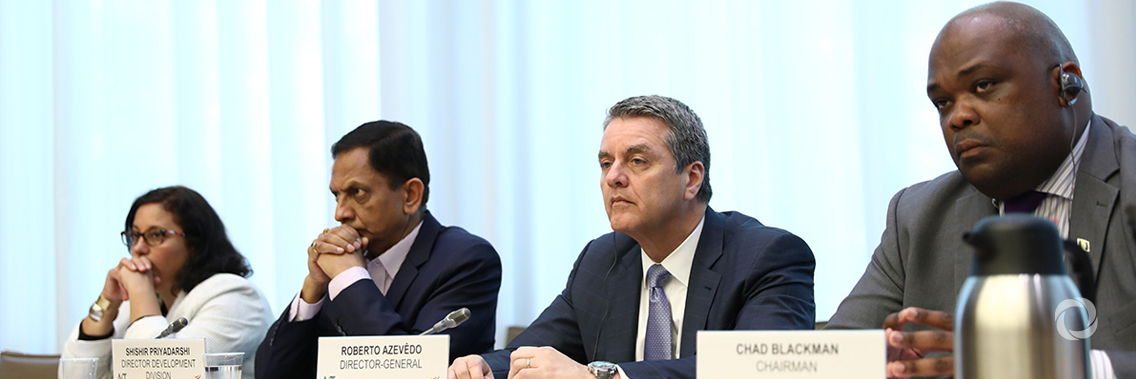Trade initiatives must keep up with the evolving needs of developing countries and environmental protection to remain relevant and inclusive, participants heard at the Aid for Trade Global Review on 4-5 July. Least developed countries (LDCs) will need continued support even as they graduate to a higher economic status, and climate change pressures will require targeted responses as well.
Forty-seven countries are currently classified as least-developed based on select economic indicators established by the United Nations, a designation also recognized by the WTO. Only five LDCs have graduated from LDC status since 1971, but 12 are expected to graduate in the coming years, with Angola, Bhutan, Sao Tome and Principe, the Solomon Islands and Vanuatu on the early graduation list. While graduation is a positive development and an acknowledgment of improving economic importance, it also means that these countries may find it more difficult to secure access to development assistance and financing and, in the WTO context, loss of flexibilities reserved for LDC members.
Atarake Nataara, Kiribati’s Minister of Commerce, noted his country’s dependence on coconut exports and fisheries licences as revenue generators, both of which are economically and environmentally vulnerable. Continued support from sources such as the Enhanced Integrated Framework will be necessary to mitigate risks arising from these potential shocks.
Kedar Bahadur Adhikari, Secretary of Nepal’s Ministry of Industry, Commerce & Supplies, noted that his country’s graduation was postponed in the wake of the devastating earthquake which hit the country in April 2015 and hampered economic growth. Continued support during the graduation process will be needed to ensure a smooth transition and adjustment to lost benefits, he said.
Several projects in Mali, Indonesia, Costa Rica and Vanuatu have successfully married environmental and gender objectives in the production of shea butter, shrimp and tourism activity, Anoush der Boghossian, WTO Trade and Gender Focal Point, said. The WTO, and indeed Aid for Trade, can do more by expanding market access, building capacity and fostering more policy dialogue related to this issue, the WTO’s Trade and Environment Division Counsellor Ludivine Tamiotti added.
Original source: WTO
Published on 05 July 2019

